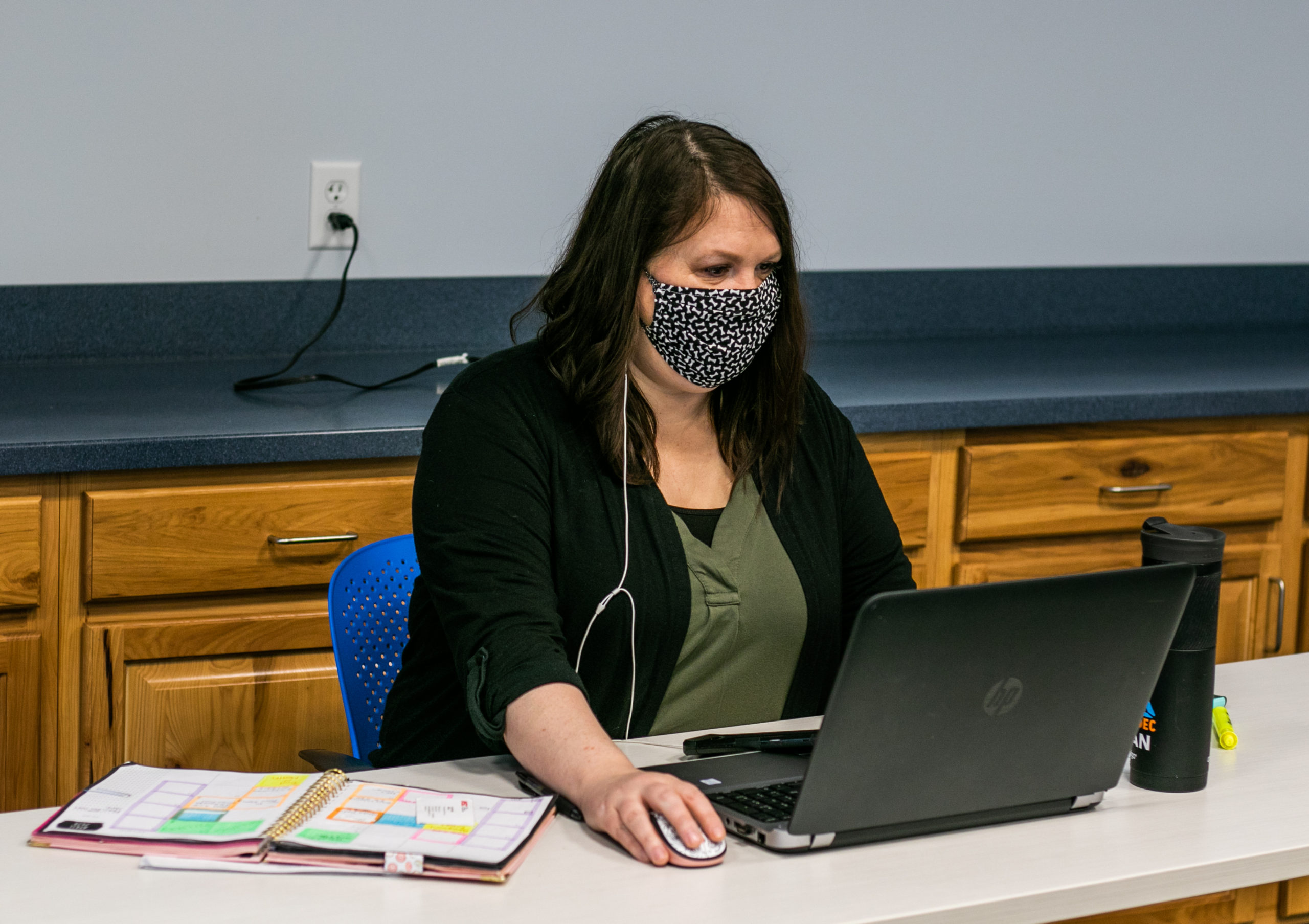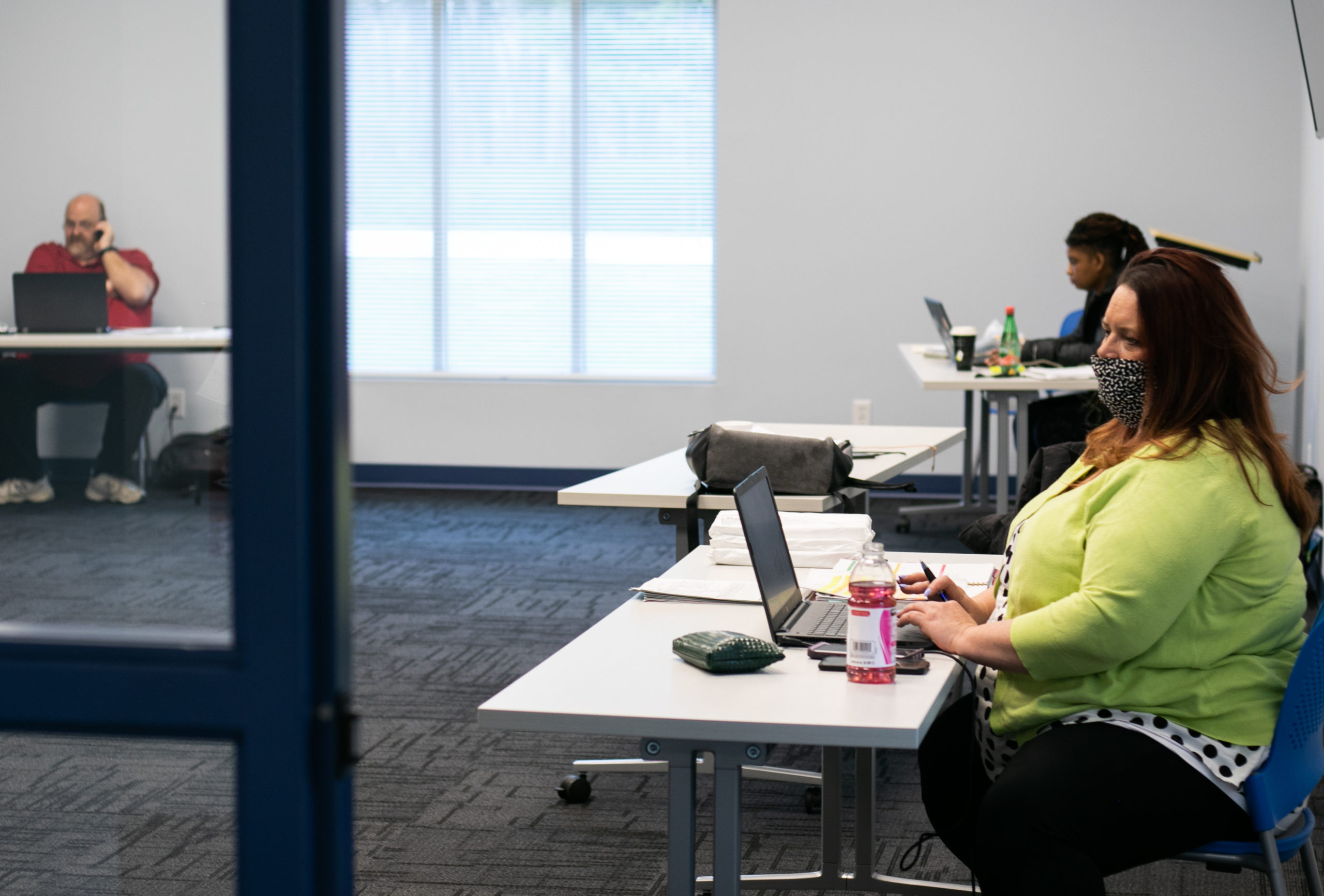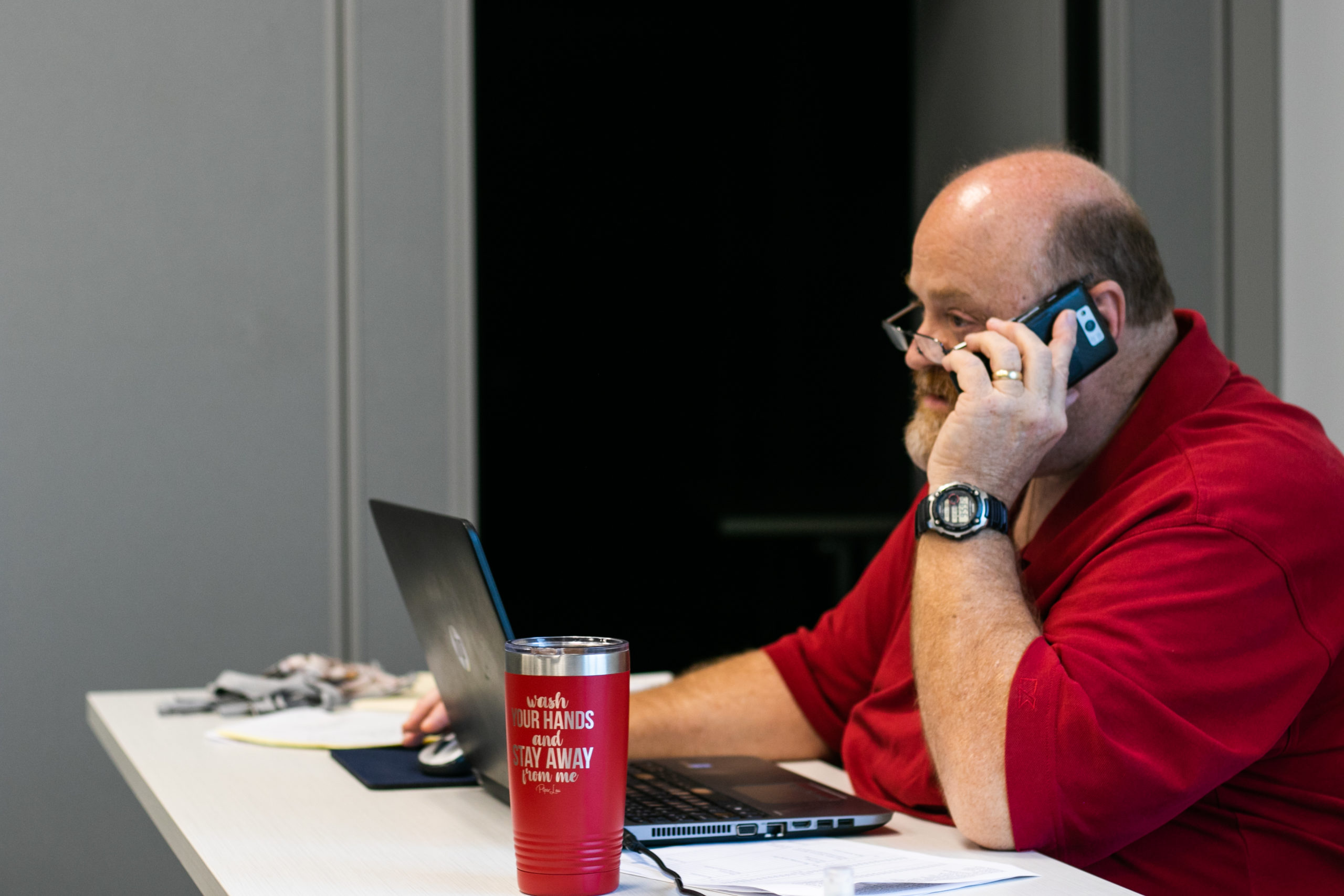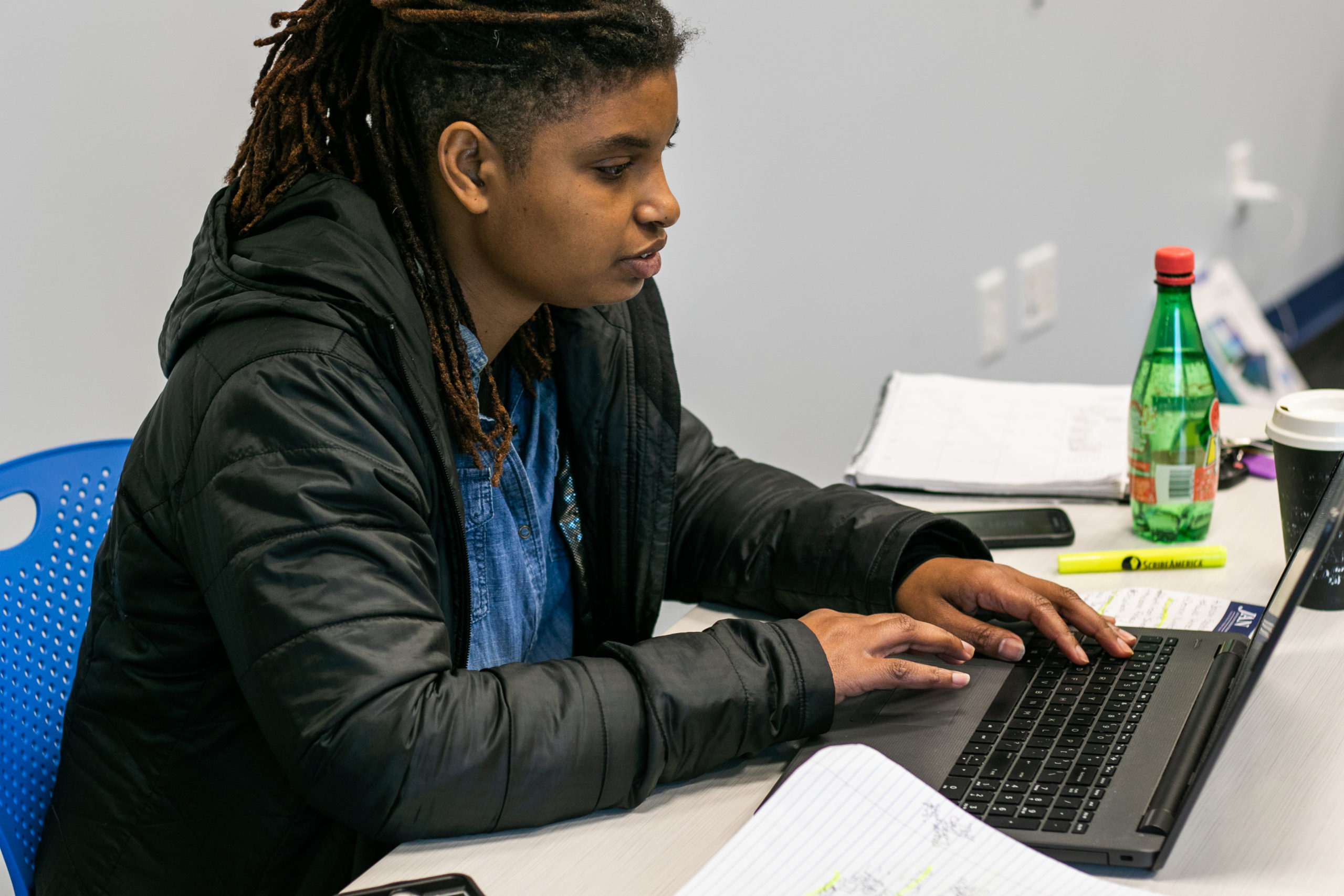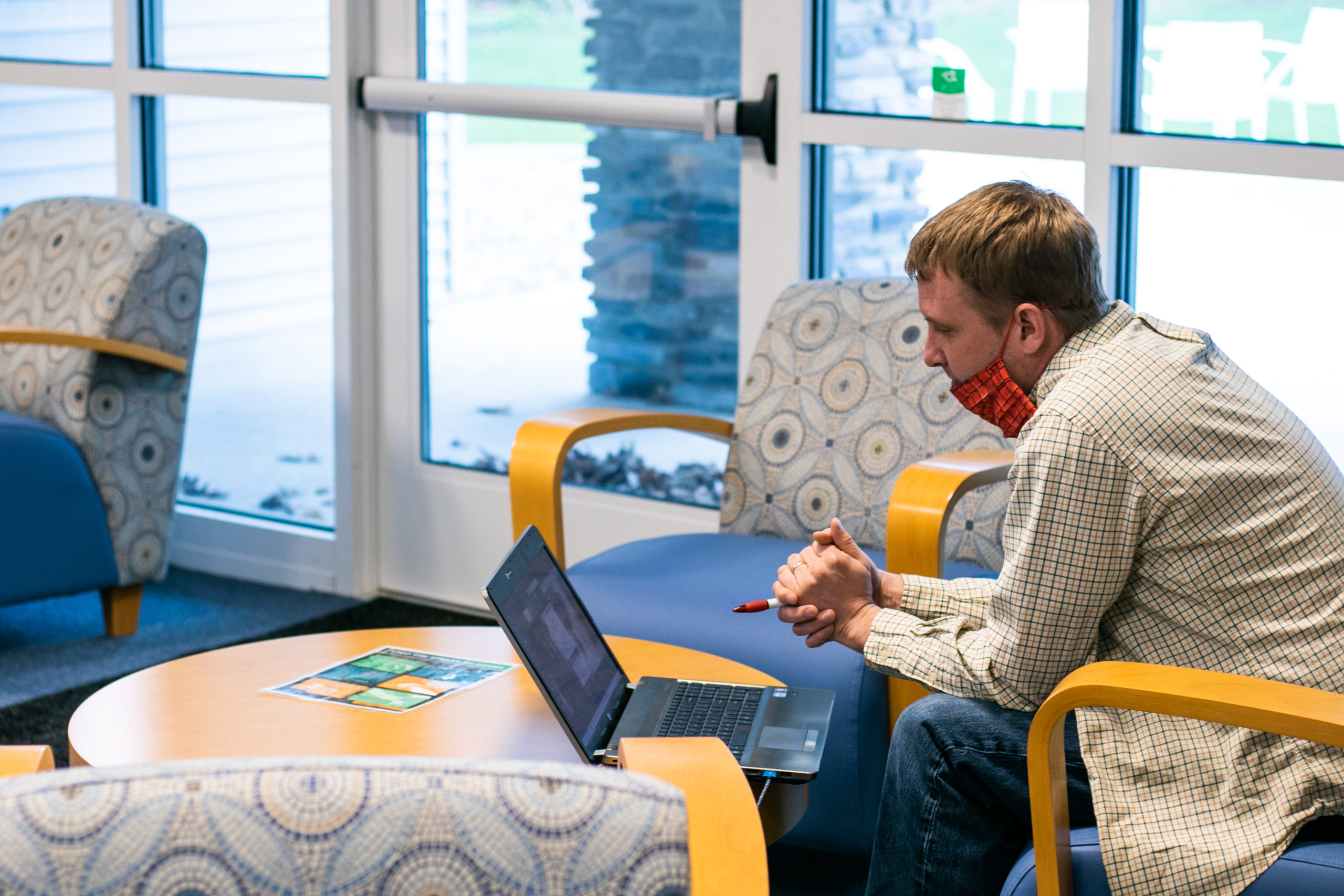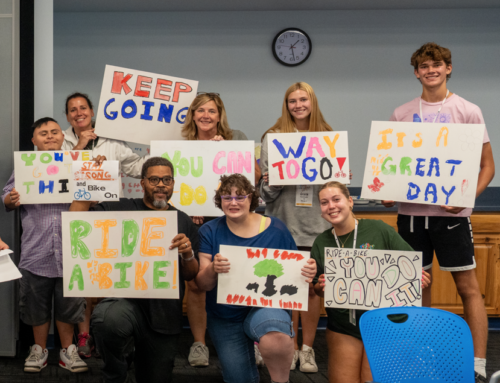This past summer, ADEC made a subtle one-word change to its mission statement, emphasizing a goal of our clients living “lives full of informed choice and possibility.” It was done to help reinforce that ADEC’s purpose in helping its clients live better lives includes providing them with a knowledge base to properly assess their options in life instead of having critical decisions simply made for them.
Perhaps never has that been more applicable than in how ADEC’s community employment staff is presently utilizing remote service delivery, similar to telehealth, to provide guidance and counsel ADEC clients who are in the same unemployment predicament as many other Americans. Many may not realize that ADEC’s community employment team also helps those, working with vocational rehabilitation, not only with IDDs but also with mental illness, physical disabilities, traumatic brain injuries, addictions and other challenges.
In addition to those who were already seeking employment and learning job-hunting skills through ADEC, we have been working with many ADEC clients who suddenly found themselves out of work in mid-March as the COVID-19 pandemic encroached upon Indiana.
Recently, the Indiana Family and Social Services Administration acted to expand the uses of remote service delivery and, ever since, the ADEC community employment staff has been working and reaching out regularly through the use of technology informing the eligible clients of their options in this critical time. The clients may have lost their jobs and some of the pride, purpose and sense of identity that comes with them, but they no longer also had to lose touch with ADEC which was, once again, there for them.
ADEC has also continued working with clients who were already seeking employment but have had their efforts severely hindered by the current state of affairs in America with substantially more competition for a shrinking number of jobs.
“During this time it is especially crucial to keep those we serve engaged,” says Susan Faltynski, ADEC’s employment services manager. “A person living life with a disability may be more susceptible to the disruptive consequences of COVID-19. This can be due to issues such as food insecurity, access to health care, social isolation, adjusting to work from home situations, or even unemployment.
“Through remote services we have been able to assist, even without face to face contact, those we serve. We provide information and resources for people to obtain food. We assisted with arranging transportation to and from pantries and work. We walk clients through the process of applying for unemployment, informing them of any potential impact on benefits from stimulus payments and similar efforts. We communicate with employers on behalf of those who cannot and check in to determine when a person may be able to return to work. For those who are not working we continue to do personalized assessments over the phone and internet to determine areas of interest, skills development, and practicing key job search elements such as interviewing and writing resumes.”
If that sounds like a lot; that’s because it is. We could talk for hours about how the ADEC community employment staff is doing things without any in-person contact. Several of these areas (like transportation) are complicated by pandemic-related components. However, ADEC is there and we are #INthistogether. Through remote service delivery:
• “We provide information and resources for people to obtain food.”
• “We assisted with arranging transportation to and from pantries and work.”
• “We walk clients through the process of applying for unemployment.”
• “(We are) informing them of any potential impact on benefits from stimulus payments and similar efforts.”
• “We communicate with employers on behalf of those who cannot and check in.”
• “For those who are not working we continue to do personalized assessments… and (are) practicing key job search elements.”
All of this is being done in the name of extending ADEC’s mission of informed choice to its community employment clients.
“Every move we make for a client is based on their personal choice,” she said. “We provide them with information that will aid in them making a decision and then we assist them with carrying out the choice they made – whether we think it is what is best for them or not.”
“ADEC is committed to our mission and serving individuals,” said president and CEO Donna Belusar. “We have an extraordinary team that recognizes our clients come first and we are adapting our services and tailoring our programs to whatever means we have available of reaching out to deliver these services. We have reconfigured ADEC conference room spaces and implemented social distancing protocol so that the employment team has a safe working environment. It puts into perspective just how much we’ve all had to adapt over the past six weeks.”
So much of what has been transpiring in ADEC’s community employment sector stands as evidence of the agency’s ability to evolve. Whether it’s the ADEC community employment team members, working with different clients than they are used to, helping them access different federal resources than usual, or simply working from a new environment through new mediums, much has changed but one constant has remained.
ADEC is helping clients live lives full of informed choice and possibility.

